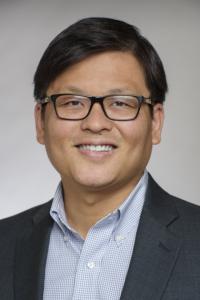CDM Faculty Member Is Awarded Prestigious NIDCR Grant to Advance TMJ “Organ-on-a-Chip” Research
Chang Lee, PhD, associate professor of craniofacial engineering at Columbia University’s College of Dental Medicine and director of the Regenerative Engineering Lab, has been awarded a highly competitive $3.8 million, five-year research grant by the National Institute of Dental and Craniofacial Research (NIDCR). This award is part of NIDCR’s Organs-on-a-Chip in Dental, Oral, and Craniofacial Research initiative.
This award coincides with NIH’s recently launched Office of Research Innovation, Validation, and Application, the goal of which is to accelerate the development and adoption of cutting-edge models across biomedical research and to prioritize human-based research technologies—including organ-on-a-chip systems, organoids, and computational modeling.
Dr. Lee’s project will develop a patient-specific temporomandibular joint-on-a-chip (TMJoC) model to study the mechanisms of temporomandibular joint disorders. TMJ disorders affect millions of people worldwide. More than 80 percent of TMJ patients experience disc displacement, a condition often linked to osteoarthritis. Despite the prevalence of the condition, treatment options remain limited due to the complexity of the temporomandibular joint.
Dr. Lee’s goal is to create a dynamic, biomimetic model of the temporomandibular joint that integrates cartilage, bone, ligaments, synovium, and adipose tissue. This organ-on-a-chip system will incorporate advanced tissue engineering and microfluidic technology, allowing researchers to mimic the inflammation, mechanical stress, and multi-tissue interactions that occur in patients.
“In this project, my lab will develop a novel TMJ-on-a-chip model that can elucidate multi-tissue crosstalk in the joint, facilitating understanding of disease initiation, progression, and regeneration,” Lee said.
Preliminary findings from Dr. Lee’s lab have already revealed that inflammation and mechanical loading strongly influence the healing of TMJ disc injuries, and that surrounding tissues—particularly adipose tissue—play protective roles by dampening harmful inflammatory responses. The TMJoC model will enable a deeper understanding of these complex interactions and provide a platform for testing regenerative therapies.
By creating the first patient-specific TMJoC derived from human induced pluripotent stem cells—adult cells reprogrammed into a stem-cell-like state that can develop into nearly any type of tissue— Dr. Lee’s work promises to transform the study of TMJ biology, disease progression, and treatment strategies. Beyond TMJ disorders, this platform has the potential to advance the broader field of dental, oral, and craniofacial regenerative medicine by offering a versatile tool to model disease and test novel therapies.
This award recognizes not only Dr. Lee’s innovative research but also highlights the College of Dental Medicine’s leadership in cutting-edge biomedical engineering approaches to pressing oral health challenges.

